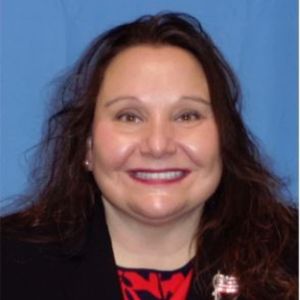Schedule
Virtual Event
December 1, 2021 – Virtual Event
Morning Plenaries & Keynote
BLANK
Your content goes here. Edit or remove this text inline or in the module Content settings. You can also style every aspect of this content in the module Design settings and even apply custom CSS to this text in the module Advanced settings.
8:15 AM-8:30 AM | General Announcements
 Kimberly Coleman
Kimberly Coleman
Chief of Staff
PA Department of Drug and Alcohol Programs
Kim Coleman’s career with the Commonwealth of Pennsylvania spans more than 30 years. After holding positions of increasing responsibility in the Department of Health, she accepted a promotion in 1999 working in the Bureau of Drug and Alcohol Programs. Ms. Coleman became the Director for the Budget and Grants Management Division with the Department of Drug and Alcohol Programs (DDAP) in 2016, where she coordinated the completion of several federal grants, including the Department’s Substance Abuse Block Grant. As the opioid crisis escalated, she played a key role in collaborating with Prevention/Treatment staff to implement special initiatives to address that crisis and vulnerable populations. The past 20 years has afforded her opportunities to grow in her career and in this field. She has developed invaluable relationships with leadership at the local, state, and national level as well as external stakeholders. In May 2019, Ms. Coleman was appointed as the first Chief of Staff for DDAP where she provides oversight for the Department’s administrative functions. She also acts as lead on various Department initiatives such as Just Five, a free online tool to enhance education and awareness about substance use disorder, as well as ATLAS, an Addiction Treatment Locator, Assessment and Standards Platform, which helps patients and families identify quality treatment. Ms. Coleman currently resides in Mechanicsburg with her husband and two children.
8:30 AM-8:35 AM | Welcome
 Governor Tom Wolf
Governor Tom Wolf
Commonwealth of Pennsylvania
On January 20, 2015, Tom Wolf was sworn in as Pennsylvania’s 47th governor. Since taking office, Governor Wolf has taken a number of steps to make Pennsylvania a better place and is fighting for Pennsylvanians in Harrisburg every day.
Under Governor Wolf’s leadership the opioid epidemic has remained a top priority. The Opioid Command Center, established under Governor Wolf’s opioid disaster declaration, resulted in significant action to address the opioid crisis including increasing the availability of naloxone, expanding access to treatment services, significantly reducing opioid prescriptions and doctor shopping, providing school-based training on opioids and opioid use disorder, providing millions of dollars in federal funding to support community-based organizations, and addressing the needs of veterans and pregnant women with substance use disorder. Through these initiatives and others, Pennsylvania saw a decrease in the overdose death rate by 18% from the height of the opioid crisis in 2017.
8:35 AM-8:50 AM | Opening Remarks

Attorney General Josh Shapiro
Josh Shapiro was elected the Attorney General of Pennsylvania in 2016. He earned his law degree from Georgetown University Law Center at night while working as a Chief of Staff in Congress. He served three terms in the Pennsylvania State House and was twice elected to County Commissioner in Montgomery County. Josh was raised in Montgomery County, where he met his high school sweetheart, Lori, and where they are raising their four young children.
8:50 AM-9:00 AM | Updates/Review

Jeremiah A. Daley
Executive Director
Liberty Mid-Atlantic HIDTA
Appointed Executive Director of the Liberty Mid-Atlantic High Intensity Drug Trafficking Area (HIDTA) in July 2004, Jerry is charged with administering over $6 million in funds awarded from the Office of National Drug Control Policy annually to address drug trafficking, money laundering and related criminal activity in a nine-county region covering Bucks, Chester, Delaware, Montgomery & Philadelphia Counties in Pennsylvania; Atlantic, Gloucester and Camden Counties, New Jersey; and New Castle County, Delaware. Foremost among his responsibilities are the management, oversight and coordination of the Liberty Mid-Atlantic HIDTA’s law enforcement, information-sharing, training and prevention initiatives. Additionally, he leads the area’s efforts in the HIDTA Program’s “Overdose Response Strategy”, a collaborative effort of HIDTAs in all 50 states, Puerto Rico and the U.S. Virgin Islands to synchronize public safety and public health agencies’ efforts in addressing the opioid crisis, curtailing fatal and non-fatal overdoses, and promoting safe and healthy communities. Prior to his appointment as Director, Jerry served 25 years with the Philadelphia Police Department, with command assignments in Patrol, Civil Affairs, Training and Narcotics Divisions, retiring as an Inspector. Jerry received his Bachelor of Arts in 1988 from Temple University in Criminal Justice, and a Master’s in Business Administration from Holy Family University in 2012. He also has completed courses of study at the Northwestern University Traffic Institute (now Center for Public Safety); the FBI National Academy, the John F. Kennedy School of Government, and the Naval Post-Graduate School. Jerry is a life-long resident of Philadelphia. He is a Past President of the Police Chiefs Association of Southeastern Pennsylvania, and serves on the Advisory Boards of the Northeast Counterdrug Training Center and the Regional Overdose Prevention Coalition.
9:00 AM-9:15 AM | Making a Difference: There’s No Better Time Than Now

Jennifer Smith
Secretary
PA Department of Drug and Alcohol Programs
As the head of the Department of Drug and Alcohol Programs (DDAP) since 2018 and the person leading Pennsylvania’s fight to help individuals suffering from substance use disorder (SUD), Secretary Jennifer (Jen) Smith has led the department’s focus on strengthening Pennsylvania’s drug and alcohol treatment landscape. Strides have been made under her leadership by increasing drug take-back opportunities, launching Pennsylvania’s Get Help Now Hotline, expanding access to naloxone in communities around Pennsylvania, and overseeing the distribution of more than $400 million in state and federal funding this state fiscal year. Secretary Smith has led collaborations with the Pennsylvania Department of Health to release guidelines and protocols for “warm handoffs” that help overdose survivors’ transition into SUD treatment and awarded Pennsylvania’s Coordinated Medication Assisted Treatment Centers to expand access to medication-assisted treatment (MAT). For her dedicated service to the field and Pennsylvania, Smith was recently awarded the National Association of State Alcohol and Drug Abuse Director’s (NASADAD) State Service Award which recognizes leaders of state agencies responsible for SUD services who have demonstrated outstanding leadership in their respective state.
During this event, Secretary Smith will set the stage for what we are seeing now and what we are focusing on at the state level. You will hear about vulnerable populations, trends and how our mission adjusts to meet current needs. This discussion and this symposium will highlight DDAP’s focus on access to treatment, ethics, stigma reduction, recovery/recovery-oriented services, case management, collaboration with law enforcement and focusing on the most vulnerable including pregnant women, veterans and communities of color. This high-level overview will provide a segue into the topics you will see over the next two days and may impact how you view this disease forever.
9:15 AM–9:45 AM | Treating Stimulant Use Disorder During an Opioid Crisis

Dr. Michael Lynch, Medical Director, Pittsburgh Poison Center
Medical Director, UPMC Health Plan Substance Use Disorder Services
Assistant Professor, Division of Medical Toxicology, Department of Emergency Medicine, University of Pittsburgh School of Medicine
Dr. Michael Lynch is an assistant professor of Emergency Medicine and Pediatrics at the University of Pittsburgh. He is board certified in Emergency Medicine, Medical Toxicology, and Addiction Medicine. Dr. Lynch graduated from the University of Notre Dame and University of Pittsburgh School of Medicine before completing his residency in Emergency Medicine and fellowship in Medical Toxicology at the University of Pittsburgh. Dr. Lynch works in the Emergency Departments at UPMC Presbyterian and Mercy Hospitals. The Toxicology service at UPMC is one of the busiest in the country, seeing patients at 5 Pittsburgh hospitals as well as providing inpatient addiction and telemedicine treatment. Dr. Lynch is the Medical Director of the Pittsburgh Poison Center and of Substance Use Disorder Services at UPMC Health Plan while continuing to serve on the Boards of Directors for the PA College of Emergency Physicians and the American Association of Poison Control Centers.
As the country continues to face an opioid crisis, it can’t lose sight of the rise in stimulant misuse. Dr. Michael Lynch will touch on the differences of treating individuals with a stimulant use disorder verses an opioid use disorder (OUD). Specifically, as it relates to treating OUD with naloxone and the fact that there is no “antidote” to address stimulant toxicity. He will also provide information for general prehospital and hospital-based treatment approaches to patients with stimulant toxicity, as well as the mechanisms (in layman’s terms) of the various types of stimulant products.
9:45 AM–10:00 AM | Good Samaritan Law

Kate Boulton
Senior Legal Technical Advisor Overdose Prevention Programs, Vital Strategies
Vital Strategies
Kate Boulton is a legal and public health professional who has focused on the criminalization of marginalized communities and its impacts on health. As Senior Legal Technical Advisor to the Overdose Prevention Program at Vital Strategies, her current work focuses on drug policy, overdose, harm reduction, and strategies to promote the rights and health of people who use drugs. Prior to joining Vital Strategies, Kate worked as Staff Attorney at the Center for HIV Law and Policy (CHLP), where she advanced CHLP’s HIV anti-criminalization portfolio through management of the Positive Justice Project. She served with the Centers for Disease Control and Prevention from 2007-2012 in the Division of Global Migration and Quarantine. Kate earned her JD from Harvard Law School and her MPH from the University of Michigan.
As you may already be aware, most states have enacted “Good Samaritan” laws that offer immunities or other legal protections to someone who calls for help in the event of an overdose. Ms. Boulton will explore Pennsylvania’s Good Samaritan law, including some of its limitations, implementation on the ground, and other factors that may impact its effectiveness.
10:00AM-10:45AM | Patterns of Psychostimulant Use – Yesterday and Today
 Dr. Barry Logan
Dr. Barry Logan
Senior Vice President
Forensic Science Initiatives
Chief Scientist, NIMS Labs
Dr. Barry Logan is Executive Director at the non-profit Center for Forensic Science Research and Education (CFSRE) at the Fredric Rieders Family Foundation in Willow Grove, Pennsylvania. He is also Chief Scientist at NMS Labs in Horsham PA, where he leads a team of forensic toxicologists and certifying scientists and is the laboratory director for its crime laboratory services in Pennsylvania, Texas and North Carolina. Dr. Logan is a Fellow of the American Board of Forensic Toxicologists (ABFT), and has over 160 publications in forensic toxicology and chemistry, including work on the effects of illicit and prescription drugs on drivers, and drug caused and related death. His current research priorities are focused on new drug trends, the opioid crisis, rapid reporting of drug mortality data, and the analytical and interpretive toxicology and chemistry of novel psychoactive substances, founding www.NPSDiscovery.org in 2018. He holds academic appointments at Indiana University, and at Arcadia University and Thomas Jefferson University in Philadelphia, and serves on the Advisory Board for NIDA’s National Drug Early Warning System (NDEWS).
Psychostimulants drugs have long been one of the primary categories of recreational drug use. Traditionally, drug users limited their use to a single substance and the markets were dominated by cocaine and methamphetamine, with significant regional differences in availability and use. Over the last five years, drug markets have changed and patterns of use along with them. There are several factors that make psychostimulant use more dangerous today, including a wider range of available more potent substances, inclusion of multiple substances in counterfeit pills, and increasing evidence of combined use of psychostimulants with opioids and benzodiazepines. The presentation will review what some of these new substances are, the rates of combined opioid and psychostimulant use and the risks to human health associated with these practices. Data from postmortem testing, seized drug, and nascent drug checking programs will be presented, along with details of the latest emerging drugs in this class.
10:45 AM-11:00 AM | Break
BREAKOUT SESSION 1 | 11:00 AM–12:00 PM
BLANK
Your content goes here. Edit or remove this text inline or in the module Content settings. You can also style every aspect of this content in the module Design settings and even apply custom CSS to this text in the module Advanced settings.
Track 1 | Treatment | Versatility of SBIRT Implementation Across Multiple Healthcare Settings
Screening, Brief Intervention, and Referral to Treatment (SBIRT) is an evidence-based public health approach to identify persons at risk for substance use disorders and provide early intervention and treatment services through universal screening. While the core components of SBIRT are constant, versatile implementation models can be developed to support individual workflows across healthcare disciplines and settings. The University of Pittsburgh Program Evaluation and Research Unit (PERU) and partnering healthcare sites that have implemented SBIRT in primary care, pharmacies, and University health centers, will discuss first-hand experiences in the flexibility of SBIRT in their workflow, reactions from staff and patient population, overcoming barriers to achieve success, and SBIRT outcomes.
|
Grace Drnach Bonaventura, MPH, CHES, is an Associate Program Implementation Specialist at the University of Pittsburgh Program Evaluation and Research Unit (PERU) in the School of Pharmacy. Grace is also an adjunct instructor in the Department of Health and Kinesiology at Lamar University. Grace received her MPH from Tulane University’s School of Public Health and Tropical Medicine and is in a doctoral program for Social and Comparative Analysis of Education through the University of Pittsburgh. Grace has experience in community health outreach and education through her previous work as a scientific research analysis for a maternal and infant mental health program and as a mentor with the Youth Empower Project’s Camp Mariposa, a prevention program for youth affected by the substance use of a family member. Grace continues to work on the PA SBIRT initiative, which has administered over 84,000 screenings across nine primary healthcare centers and advocates for SBIRT integration throughout the Commonwealth. |
|
Megan Fanella attended Clarion University of PA and received a Bachelor’s degree in Psychology and Associate degree in Criminal Justice. She has experience at UPMC Altoona Inpatient Behavioral Health unit for about 1.5 years and transferred to UPMC Western Behavioral Health of the Alleghenies working in resource coordination for 3 years. Megan joined Blair Drug and Alcohol Partnerships in December 2019 and started with the SBIRT project, a couple years after the beginning of the grant. She primarily worked with UPMC Pregnancy Care Center as the care coordinator but would often assist UPMC Altoona Family Physicians. Megan conducted screening, brief interventions, and referrals to treatment while maintaining data entry. |
|
George E. Downs, PharmD, FCPP is Linwood F. Tice Professor of Pharmacy and Dean Emeritus at the Philadelphia College of Pharmacy where he has served for 49 years. Dr. Downs received his BS in Pharmacy from the University of New Mexico and his Doctor of Pharmacy from Philadelphia College of Pharmacy and Science (now University of the Sciences). He completed residencies with the US Public Health Service and the University of Arkansas. |
|
Donna George holds a graduate degree in Counseling and in Higher Education from Indiana University in Bloomington, Indiana. She has worked in the fields of domestic violence and alcohol and other drugs (AOD) both in academic and non-profit settings for over thirty years. Since 2014, she has served as the Pennsylvania State System of Higher Education’s (PASSHE) AOD Coalition Coordinator. Donna is committed to prevention, and she believes in evidence-based strategies for their potential to transform both individuals and communities. She is a strong advocate for support to collegiate prevention efforts. |
|
Christina Dignan received her BS degree in Physician Assistance Sciences from Saint Francis College in 1996 and received her Opioid Treatment Specialist Certificate from Clarion University in 2019. Christina is the supervisor for Advanced Practice Providers. She has provided patient care at Altoona Family Physicians for the past 18 years. Additionally, Christina was Altoona Family Physician’s Site Champion for the PA SBIRT initiative since 2018 and continues to advocate for SBIRT services. |
Track 2 | Law Enforcement | Breaking the Cycle
Learn about PA’s LETI, Law Enforcement Treatment Initiative, and find out how the Attorney General’s Office works with local District Attorney Offices to develop a county wide policy to support their population and needs. The AG’s office writes the policy as well as works with all Single County Authorities to make the connect to treatment as easy as possible for law enforcement. Hear directly from counties that participate in LETI and find out how this is a true diversion for non-violent individuals who come in contact with the criminal justice system on account of drug dependency can get the help they so desperately need.
Speakers:

Janene Holter PhD
Strategic Initiatives Operator,
PA Office of Attorney General Bureau of Narcotics Investigation and Drug Control Statewide Drug Initiatives: Law Enforcement Treatment Initiative
Dr. Holter develops and implements new initiatives assisting law enforcement across the Commonwealth of Pennsylvania. She has developed, wrote policies, and is managing PA LETI (Law Enforcement Treatment Initiative) currently for eleven counties and the Office of Attorney General. She works with the District Attorney’s office as well as stakeholders in these counties. Dr. Holter attends monthly case management meetings with treatment providers and counties regarding LETI referrals. She is currently working with other counties to develop LETI policies. Dr. Holter also instructs law enforcement officials on substance use disorder, stigma, and referring persons for treatment rather than arrest for minor drug offenses using their county LETI policy. She also works with private insurance and the Single County Authorities to help any individuals get into treatment. Prior to attaining this position, Dr. Holter worked in the Bureau of Narcotics Investigation and Drug Control as an Undercover Narcotics Agent and a Supervisory Narcotics Agent. She has been employed with the office since 1999. Dr. Holter was previously employed as an Intensive Drug and Alcohol Adult Probation/Parole Officer with Carbon County, a Caseworker with Kids Peace National Hospital for Kids in Crisis and a Drug and Alcohol Case Manager for Carbon-Monroe-Pike Drug and Alcohol Commission. Dr. Holter received a bachelor’s degree in Criminal Justice Administration from Alvernia University, a Master of Public Administration with a concentration in Criminal Justice Degree from Marywood University and a PhD from Alvernia University in Leadership with a concentration in community. She is also employed with Alvernia University as an adjunct faculty member in their Criminal Justice Department since 2002 and with St. Joseph’s University CARE as their outreach coordinator since 2020.
 Catherine Kilgore
Catherine Kilgore
CJAB Administrator
Dauphin County District Attorney’s Office
Ms. Kilgore is the Criminal Justice Advisory Board (CJAB) Administrator for Dauphin County, Pennsylvania, and works in the Office of the District Attorney. She has served in this capacity for 10 years. She serves on many CJAB subcommittees, writes grants, organizes project implementation, and has conducted court program planning and coordination for the Recovery Connections Court (RCC) Program, and supervises the Drug and Veterans Problem Solving Courts in Dauphin County. She has lectured, structured, and been part of panels for multiple PCCD, PADCP, and CCAP conferences and symposiums in the past. Her remarks about the impact of criminal justice funding reductions on criminal justice programming were selected by the National Criminal Justice Association to be presented to Congress in 2014. She is a 2014 recipient of the PCCD Linda K. M. Ludgate CJAB Excellence in Leadership Award. In 2013, she was selected as the Pennsylvania representative on a Brennan Center for Justice Blue Ribbon Panel on the Edward Byrne Memorial Justice Assistance Grant Performance Measures. The report that resulted from this work prompted a complete redesign of the performance measures used for those grants nationwide. Ms. Kilgore is a graduate of Muhlenberg College in Allentown, PA. She continues to be excited by the positive growth and change in Pennsylvania’s Justice System.
 District Attorney Jack Stollsteimer
District Attorney Jack Stollsteimer
Delaware County
Jack Stollsteimer was sworn in as the District Attorney for Delaware County in January 2020. From the outset of his tenure, the District Attorney has worked on collaborative efforts to reduce the number of individuals incarcerated for substance use disorder. Working with the elected officials in Delaware County, as well as other law enforcement leaders, in October of 2020 the District Attorney led the effort to lessen the penalties associated with the possession of a small amount of marijuana. In addition, recognizing the ongoing scourge presented by the opioid epidemic, the District Attorney has spearheaded an ongoing drive to distribute the life-saving drug Narcan to community members as well as first responders. With the leadership of the Attorney General, the office has also worked closely with the law enforcement community to adopt the AG’s Law Enforcement Treatment Initiative, which will be discussed in detail today.
 Jamie K. Goldstein
Jamie K. Goldstein
Administrative Assistant, Office of Lieutenant Governor
PA Board of Pardons
Jamie Goldstein works as an Administrative Assistant for the Lieutenant Governor’s Office at the Board of Pardons. Her responsibilities include maintaining the agency’s website, statistics, processing clemency applications, Governor’s Action, Governor’s Correspondence, as well as assisting staff with tasks, and projects. She brings over 23 years of experience in customer service, information technology, and management to the agency. Previously she worked as an IT Engineer, Asset Manager, Administrative Director, Quality Manager and former CEO of a small IT company.
Track 3 | Surveillance Data | The More We Know, The More We Can Affect Change- Overdose Fatality Review Teams
Overdose Fatality Review Teams are utilizing data about overdose deaths such as family dynamics, criminal activity, and other personal history without violating State and Federal personal identifying information regulations. This data is collected at the county level and analyzed to reduce the rate of overdose deaths, educate us on systemic changes that are needed and ultimately to better serve Pennsylvanians. Find out what data trends have already been identified. For those of you that are interested in creating an Overdose Fatality Review Team in your county, you won’t want to miss hearing from these experts.
|
Sam Smith, MPH Ms. Samantha Smith is the Public Health Program Manager with City of York Bureau of Health. She received her master’s degree in public health from The George Washington University. Ms. Smith leads the Overdose Data To Action (OD2A) program and works to create a healthier community with a comprehensive approach to substance abuse prevention. Ms. Smith was one of the initial leaders in the fight against opioid overdoses and currently coordinates prevention and response activities in York County including the development and coordinator of the Overdose Fatality Review Team. |
|
Neda Soltani, as the Coordinator of the Overdose Data to Action (OD2A) grant, works closely on County overdose prevention efforts. In her role within OD2A, Neda coordinates activities so that both the Office of Public Health and the Office of Drug & Alcohol are closely working together. Prior to joining Montgomery County, Neda worked in the Lehigh Valley in substance use prevention education with the Center for Humanistic Change. |
Dave Synnamon
David Synnamon, MPH has been in the injury prevention field for over a decade. He began his career focusing on child transportation safety working for the PA Chapter of the American Academy of Pediatrics. For the last 8 years David has been working for the City of Allentown’s Health Bureau as the Injury Prevention Manager, focusing on traffic safety, elderly falls prevention, child abuse prevention, opioid fatality prevention, home injury prevention and safe sleep practices. David graduated from Drexel University with a Masters in Public Health.
Track 4 | Strategies and Solutions | Empowering Sustained Recovery
The vision of all Pennsylvanians living free, or in recovery, from addiction can’t be realized without the recovery and recovery-oriented services of care. While the overdose epidemic has unfortunately claimed the lives of thousands of Pennsylvanians, we recognize the incredible potential for healthy, fulfilling, and sustained recovery for individuals on the other side of this disease. Learn about these programs and how they are teaching individuals who suffer from the disease of addiction to live full and happy lives.
 Derrick Pelletier
Derrick Pelletier
Director of Intergovernmental Affairs
Department of Drug and Alcohol Programs
Commonwealth of PA
Derrick Pelletier serves as the Director of Intergovernmental Affairs for the Pennsylvania Department of Drug and Alcohol Programs (DDAP). Derrick is a public policy analyst with experience researching complex issues, recommending solutions, and mobilizing stakeholders to drive political and social decisions. In his current role, he is focused on strengthening services in the drug and alcohol field through key initiatives such as Recovery Rising, aimed at fostering a resilient, diverse, and accessible recovery environment in Pennsylvania, as well as projects aimed at promoting greater diversity, equity, and inclusion within DDAP and across the field. As a member of the Wolf Administration’s Opioid Command Center, as well as the subsequently formed Interagency Substance Use Response Team, Derrick works to ensure that fighting the overdose epidemic remains a priority on the federal, state, and local levels. Derrick’s public career began in the Rhode Island Office of Regulatory Reform. As Deputy Director, he approved all agency regulations related to health and human services. Derrick authored a comprehensive update to Rhode Island’s rulemaking processes which removed burdensome, outdated, and duplicative regulations and led to a 31% reduction of all state regulations. Prior to his work in state government, Derrick spent 12 years working with and on behalf of children with special health care needs and their families. Derrick holds a Bachelor’s in Psychology and a Master’s in Public Administration from the University of Rhode Island. In 2016, he relocated to his wife Stacey’s home state of Pennsylvania and lives with her and their twin daughters, Maddy and Gabby, in Hummelstown.
 William Stauffer, LSW CCS CADC
William Stauffer, LSW CCS CADC
Executive Director
The Pennsylvania Recovery Organizations – Alliance
William Stauffer is the Executive Director of Pennsylvania Recovery Organization Alliance (PRO-A), the statewide recovery organization of Pennsylvania. He is in long-term recovery for well over 3 decades. He has developed and facilitated training as part of the Faces & Voices of Recovery National Training Institute, including training for Virtual Recovery Support Services (VRSS). He has written collaboratively with internationally known addiction and recovery writer Bill White and the first Director of NIDA Dr Robert DuPont. Mr. Stauffer has initiated numerous workforce expansion initiatives and a major focus of his work has been aimed at moving our SUD care system towards a five-year care paradigm to dramatically expand the numbers of Americans in recovery. He ran a recovery house taskforce for the Pennsylvania that helped inform PA Act 59 of 2017. In 2018, he testified in front of the US Senate Special Committee on Aging on the opioid epidemic and older adults, and in 2019, he conducted a hearing with the PA House Human Services Committee to expand recovery opportunities for young people. He also testified at a hearing in PA in front of the House Human Services Committee on the impact of COVID-19 on SUD treatment and recovery efforts in the state of PA. He was recently invited out to Utah to do a presentation in the Spring of 2022 on the history of recovery advocacy in America. He is a past co-chair of the public policy committee for Faces & Voices of Recovery from 2016 through 2020 and the 2019 recipient of the Vernon Johnson Award Individual Recovery Advocate of the year at the America Honors Recovery dinner. He is also an adjunct professor of Social Work at Misericordia University in Dallas Pennsylvania.
 Joi Honer
Joi Honer
Joi Honer has been in recovery for over 40 years, and she is passionate about making sure people new to recovery have the tools they need to sustain their recovery through connection, advocacy, and communications. Joi graduated from Alvernia University with a degree in Addiction studies and has worked in the drug and alcohol field for 31 years. Her current position as the Senior Director of Alumni and Communication Engagement at Retreat Behavioral Health allows her to be part of the process of connecting people who were in treatment to ongoing recovery resources, a vital part of the treatment process. Joi is also fervid about meeting people where they are at; she is a member of the Berks Opioid Response Team, the Pennsylvania Harm Reduction network, and the Recovery Advocacy Project.
BREAK FOR LUNCH 12:00 PM–1:00 PM
Plenary
BLANK
Your content goes here. Edit or remove this text inline or in the module Content settings. You can also style every aspect of this content in the module Design settings and even apply custom CSS to this text in the module Advanced settings.
1:00 PM-2:00 PM | Recovery Works!

Dr. Haner Hernandez
Director
Hernandez Consulting
Dr. Haner Hernandez, a bilingual native of Puerto Rico with more than 33 years in the health and human service field, has been developing, implementing, and evaluating culturally and linguistically intelligent youth and adult health prevention, intervention, treatment, and recovery supports. As a person himself in long-term recovery from addiction, Dr Hernandez is committed to eliminating health disparities by working at the national state and local level.
This presentation will explore the development of disparities related to SUDs and Mental Health in the US and their impacts on racialized communities. Utilizing a social justice framework the participants will learn about building health equity and community engagement. Participants will also learn about approaches and strategies grounded in cultural humility and cultural intelligence.
2:00 PM-2:15 PM BREAK
BREAKOUT SESSION 2 | 2:15 PM-3:15 PM
BLANK
Your content goes here. Edit or remove this text inline or in the module Content settings. You can also style every aspect of this content in the module Design settings and even apply custom CSS to this text in the module Advanced settings.
Track 1 | Treatment | Evidence-Based Practices for Stimulant Use Disorder
Thomas Jefferson University Narcotics Addiction Rehabilitation Program (NARP) will present on Contingency Management within an Intensive Outpatient Program (IOP) as an Evidence Based Practice for Stimulant Use Disorder. They will also provide information about this intervention within the context of an opioid treatment program. Contingency Management has been studied at Jefferson NARP and Dr. Sterling is proposing Contingency Management for use in the new IOP model that is being developed in Philadelphia. Dr. Sterling is a psychologist and the Director of the Division of Substance Abuse Programs at Jefferson.
 Robert Sterling, Ph.D.
Robert Sterling, Ph.D.
Director, Center on Community Substance Abuse Programs (C-SAP), Department of Psychiatry and Human Behavior, Thomas Jefferson University
After completing his doctoral studies in Applied Research and Evaluation in Psychology at Hofstra University in 1986, Dr. Sterling began his academic career in the Department of Community Medicine at the Mt. Sinai School of Medicine before coming to Jefferson in the Fall of 1989. Upon his arrival in Philadelphia, he directed the Division of Substance Abuse Program’s (now C-SAP) innovative intensive outpatient treatment program which was designed to address the unique needs of the cocaine dependent individual. Since then, Dr. Sterling has been the Principal or Co-Investigator of multiple NIH and city-funded research projects. A common them coursing through much of this work is the recognition that individual differences in both history and severity of addiction render a one-size fits all approach to substance abuse treatment ineffective. Given the axiomatic finding that those who remain in treatment evince better outcomes than those who do not, a major focus of Dr. Sterling’s research activities in C-SAP has been the identification of individual as well as program-level factors that promote patient engagement and retention in outpatient treatment.
In addition to publishing over 70 peer-reviewed articles on addiction treatment, Dr. Sterling has served on the editorial board of the American Journal of Drug and Alcohol Abuse, and reviewed articles for journals such as Drug and Alcohol Dependence, the Journal of Substance Abuse Treatment, and the Journal of Consulting and Clinical Psychology. On the basis of his research activities on the role of religion and spirituality in the drug and alcohol recovery process, he was recruited by the National Institute on Child Health and Human Development to serve as an expert reviewer. Most recently, Dr. Sterling arranged for C-SAP’s Narcotic Addict Rehabilitation Program to be designated as an Opioid Use Disorders Center of Excellence. The recipient of numerous awards for teaching and mentoring (Jefferson), research (Caron Foundation), and clinical service (Mayor’s Commission on Drug and Alcohol Abuse), Dr. Sterling currently holds the rank of Full-Professor and since 2011 has served as the Director of the Department of Psychiatry’s Center on Community Substance Abuse Programs (C-SAP).
 Meghan Morley, LPC
Meghan Morley, LPC
Clinical Operations Manager, Center on Community Substance Abuse Programs (C-SAP), Department of Psychiatry and Human Behavior, Thomas Jefferson University
Meghan Morley is the Clinical Operations Manager for the C-SAP at Thomas Jefferson University. She received her master’s degrees in Counseling and Mental Health Services in 2014 and Professional Counseling in 2015 from the University of Pennsylvania. Meghan began at NARP in November of 2015 as a therapist, moving into the role of intake coordinator in March 2016 and in July 2017 began her work as the Opioid Use Disorder Center of Excellence, Lead Patient Navigator for TJU NARP. Meghan was moved into the Clinical Operations Manager role in 2020 and is interested in how policy and regulations surrounding substance use disorder (specifically OUD) treatment impact treatment outcomes.
Track 2 | Law Enforcement | Drug Checking: It’s Not Just For People Who Use Opioids
This session will provide insight into the use of fentanyl test strips (FTS) as a tool to prevent overdose and facilitate linkages to care including for people who use stimulants. Learn how other states are making legal considerations and changes to current laws. Most importantly find out how to manage risks in the Fentanyl Era.
|
Jennifer J. Carroll Dr. Carroll is a medical anthropologist with interdisciplinary training in anthropology, sociology, epidemiology, and clinical research. She is primarily and ethnographic researcher specializing in substance use and public health interventions to reduce overdose and other harms of substance use in North American and Eastern European societies. She is especially interested in how policy, culture, belief, and behavior intersect to create persistent disparities in health, welfare, and social capital. |
 Traci C. Green
Traci C. Green
Professor and Director, Opioid Policy Research Collaborative, Heller School for Social Policy and Management, Brandeis University; Adjunct Associate Professor, Brown University
Dr. Green is an epidemiologist whose research focuses on drug use, opioid use disorder, and drug-related injury. She earned a Master of Science in Epidemiology and Biostatistics from McGill University and a PhD in Epidemiology from Yale University. She helped design the ASI-MV®, a real-time illicit and prescription drug abuse surveillance system developed by Inflexxion, Inc. Prior to joining the Heller School at Brandeis, she served as Deputy Director of the Boston Medical Center Injury Prevention Center, Associate Professor of Emergency Medicine and Community Health Sciences at the Boston University Schools of Medicine and Public Health. She is an Adjunct Associate Professor at the Warren Alpert School of Medicine at Brown University where she co-directs the Center of Biomedical Research Excellence (COBRE) on Opioids and Overdose at Rhode Island Hospital. Dr. Green helped co-found www.prescribetoprevent.org for prescribers and pharmacists and its companion site www.prevent-protect.org for families, patients, and community organizations. She serves as an advisor to the Rhode Island Governor on addiction and overdose, and consults for the Center for Disease Control and Prevention and the High Intensity Drug Trafficking Areas on public health and public safety opportunities. She served on the Board of Scientific Counselors for the CDC’s National Center for Injury Prevention and Control and two recent National Academy of Sciences, Engineering, and Medicine’s Committees pertaining to opioid pain management, regulatory strategies to address opioids, and medications for opioid use disorder. Her research is supported by the CDC, the National Institute on Drug Abuse, the Agency for Healthcare Research and Quality, the Patient Centered Outcomes Research Institute, the Bloomberg American Health Initiative, and the Department of Justice.
Track 3 | Surveillance Data | Stimulant Prescription Trends and Stimulant-Naïve Prescription Trends in Pennsylvania
This presentation will examine recent overall stimulant prescription trends in Pennsylvania, as well as trends by key demographic groups. Additionally, this presentation will explore temporal changes in prescribing trends to stimulant-naïve Pennsylvania residents, and how these trends also differ by key demographic groups.

Sonam Delvadia
Epidemiology Research Associate
Office of Drug Surveillance and Misuse Prevention
Pennsylvania Department of Health
Sonam Delvadia is an Epidemiology Research Associate at the Office of Drug Surveillance and Misuse Prevention (ODSMP) at the Pennsylvania Department of Health, and has served in this role for a year. Since her arrival at the ODSMP, Mrs. Delvadia has conducted several analyses examining temporal changes in stimulant prescribing trends among different age groups in Pennsylvania. Before joining the ODSMP, Mrs. Delvadia served as a HIV Surveillance Analyst at the Pennsylvania Department of Health. Mrs. Delvadia received a MPH, with concentration in Epidemiology, from Emory University, and a BS in Public Health Sciences from the University of California, Irvine.
 Dr. Jeanette Trella is the Managing Director at The Poison Control Center at Children’s Hospital of Philadelphia (CHOP). She received her Doctor of Pharmacy degree at the James L. Winkle School of Pharmacy at the University of Cincinnati, and completed pharmacy practice residency at Children’s Hospital of Philadelphia. She is a Board Certified Pediatric Clinical Pharmacist and practiced as a Clinical Pharmacy Specialist in General Pediatrics prior to her time in the in the Poison Control Center.
Dr. Jeanette Trella is the Managing Director at The Poison Control Center at Children’s Hospital of Philadelphia (CHOP). She received her Doctor of Pharmacy degree at the James L. Winkle School of Pharmacy at the University of Cincinnati, and completed pharmacy practice residency at Children’s Hospital of Philadelphia. She is a Board Certified Pediatric Clinical Pharmacist and practiced as a Clinical Pharmacy Specialist in General Pediatrics prior to her time in the in the Poison Control Center.Track 4 | Strategies and Solutions | Making a Difference in the Life of Children
Anyone can make a difference in a child’s life. It may be a close family member or a trusted adult. During this session, you will hear why it is so important to take time to focus on the well-being of children who experience the trauma of having a loved one suffer from the disease of addiction directly from people who care about them.
|
Hannah Evans Hannah Evans, formerly Gearhart, was raised in Fayette County, Pennsylvania. Her Family resides on Chestnut Ridge, nestled in the Appalachian Mountains. Hannah is a graduate of Penn State University, where she earned a Bachelor’s Degree in Business Administration. Additionally, she earned her Master’s in Education from West Viginia University. The first five years of her teaching profession were in West Virginia at Gilmer County High School and Richwood High School. The following five years were in Pennsylvania-at Chambersburg High School and, currently, at New Oxford Middle School. Inspired by her grandmother’s love of genealogy, Hannah has taught history and social sciences. From her life experiences, she understands the hardships of poverty and the struggles of being raised in Appalachia. As a teacher, she noticed the unique challenges and emotional hardships faced by her students. Hannah created Annie’s Appalachian Adventures to help mend broken hearts with the hopes that all children can love themselves and achieve their dreams. |

Michael Hunt
Intelligence Manager
Liberty Mid-Atlantic High Intensity Drug Trafficking Areas Program
Michael has spent over nine years with the Office of National Drug Control Policy’s Liberty Mid-Atlantic High Intensity Drug Trafficking Areas ( LMA HIDTA) program located in Philadelphia, PA. As Intelligence Manager, he oversees the collection, analysis, and reporting of information detailing local, regional, national, and international drug trends. He has considerable experience advising public safety and public health partners, to include consulting the Pennsylvania State Police in developing the Overdose Information Network (ODIN) and assisting the CDC Foundation with staffing and program evaluation for the Overdose Response Strategy. Prior to his current role, Michael served as a Strategic Intelligence Analyst at LMA HIDTA, researching drug trends, analyzing drug-related data and intelligence, and authoring drug Threat Assessments and intelligence reporting. Michael holds a Bachelor’s Degree in Corporate Communications from The Pennsylvania State University, a Master’s Degree in Criminal Justice – Intelligence Analysis from St. Joseph’s University, and is a graduate of the Senior Executive Fellows program at Harvard University’s John F. Kennedy School of Government. He is a child of addiction.
3:15 PM-3:30 PM BREAK
Plenary & Closing Remarks
BLANK
Your content goes here. Edit or remove this text inline or in the module Content settings. You can also style every aspect of this content in the module Design settings and even apply custom CSS to this text in the module Advanced settings.
3:30 PM–4:00 PM | “Be the Change You Wish to See in the World” -Ghandi

Gary Mendell
Founder & CEO
Shatterproof
Gary Mendell is the founder and CEO of Shatterproof, a national nonprofit dedicated to reversing the addiction crisis in the United States. After losing his son Brian to addiction in 2011, Gary founded Shatterproof to spare other families the tragedy his had suffered. Since founding Shatterproof, Mr. Mendell has been recognized as a national leader in the addiction space, working to transform how opioid and substance use disorders are treated. His priorities include advocating for state and federal policy change, ending the harmful stigma of addiction, and supporting and educating our communities. Mr. Mendell has testified in front of the President’s Commission on Combating Drug Addiction and the Opioid Crisis and his opinions are frequently reflected in the media. He is a member of the National Quality Forum’s Technical Expert Panel for Opioid and Opioid Use Disorder and is an advisory member of The Opioid Policy Research Collaborative at the Heller School for Social Policy and Management at Brandeis University. Before Shatterproof, Mr. Mendell spent decades as an entrepreneur. He founded HEI Hotels & Resorts, a multi-billion-dollar company that oversees a portfolio of approximately 70 first class hotels. Mr. Mendell received his B.S. from Cornell University’s School of Hotel Administration and his MBA with distinction from the Wharton School at the University of Pennsylvania.
There has never been a more fitting quote to describe someone. Gary Mendel turned the loss of his son and the struggles that his family felt into a lifelong mission. His national nonprofit organization, Shatterproof, focuses on education, accessing treatment and reducing the stigma surrounding this disease. His journey may just change yours.
4:00 PM-4:15 PM | Closing Remarks
Kimberly Coleman
Chief of Staff
PA Department of Drug and Alcohol Programs
December 2, 2021 – Virtual Event
Morning Plenaries & Keynote
BLANK
Your content goes here. Edit or remove this text inline or in the module Content settings. You can also style every aspect of this content in the module Design settings and even apply custom CSS to this text in the module Advanced settings.
8:00 AM–8:15 AM | Welcome & Opening Remarks
Kimberly Coleman
Chief of Staff
PA Department of Drug and Alcohol Programs
8:15 AM-9:00 AM | Stimulant and Other Emerging Drug Threats Through COVID-19: Urban and Rural

John Eadie
Public Health and PDMP Project Coordinator
National Emerging Threats Initiative
A National HIDTA Initiative
John L Eadie is the Public Health and Prescription Drug Monitoring Programs (PDMP) Project Coordinator for the National Emerging Threats Initiative, a National High Intensity Drug Trafficking Areas (HIDTA) Program. His 50 years in public health include 35 years enhancing PDMPs.
As Director of the Division of Public Health Protection in the NY State Department of Health from 1985 to 1995, he directed the State’s pharmaceutical diversion program, including the PDMP. He co-founded the Alliance of States with Prescription Monitoring Programs (ASPMP) and the National Association of State Controlled Substances Authorities (NASCSA). After leaving NY State in 2001, he served as a PDMP consultant. From 2010 to 2015, he was founding Director of the PDMP Center of Excellence (COE) at Brandeis University. In 2015, he transferred to the HIDTA Program. He has published multiple articles, made numerous presentations, and served in many arenas as an expert. He is the recipient of the 2019 Congressman Hal Rogers Beacon of Hope Award at the April 2019 Rx Drug Abuse & Heroin Summit in Atlanta, GA.
Has the COVID-19 Pandemic had an impact on stimulant drugs? How is Fentanyl abuse and misuse changing? Do rural counties have the same substance use disorder problems as the urban counties? Can we identify emerging drug threats in rural counties? The National Emerging Threats Initiative’s (NETI) brings you up to date on the major surge in stimulant drug abuse and these issues.
9:00 AM–9:15 AM BREAK
BREAKOUT SESSION 1 | 9:15 AM–10:15 AM
BLANK
Your content goes here. Edit or remove this text inline or in the module Content settings. You can also style every aspect of this content in the module Design settings and even apply custom CSS to this text in the module Advanced settings.
Track 1 | Treatment | Evidence-Based Practices for Stimulant Use Disorder
Learn about Community Reinforcement Approach and Contingency Management: As we are all adjusting to the impacts of COVID-19, where community relationships and resources have changed dramatically it can almost be hard to think of all the positive community resources, outlets and supports that exist. So what IS Community Reinforcement Approach? How does Community Reinforcement approach work? And how does it work with a Contingency Management program? How do we utilize Community Reinforcement Approach and Contingency Management when many of our neighborhoods are struggling for resources, positive outlets, positive supports etc.? There are a lot of good grassroots recovery movements in Pennsylvania that are doing their part to create community engagement, positive outlooks and positive activities that are driven by folks in recovery and or their families even during this trying time while overdose rates increase. Join us to learn about these evidence-based programs, how to implement them and improve client engagement. Participants will understand the core components of Community Reinforcement Approach and Contingency Management and be able to identify ways to implement such programs to improve client engagement.
 Dr. Martha Thompson PsyD., LPC., CAADC
Dr. Martha Thompson PsyD., LPC., CAADC
Empower the Mind LLC
Dr. Thompson is the founder and lead clinician at Empower the Mind LLC in Central Pennsylvania. She provides outpatient mental health, SUD treatment, clinical trainings, and consultation for professionals in the field. Since starting her company in 2012 she has helped to grow, develop and oversee several community-based prevention programs such as Connected Together – a community violence prevention program providing free mobile trauma therapy to those in need, Breaking the Cycle, Changing the Future – a SUD peer recovery support program for pregnant and postpartum women which includes consultation for the professionals working with this special population, and Lebanon County Student Assistance Program. In 2016 Dr. Thompson was elected to join the Board of Directors for the Pennsylvania Certification Board. Over the last several years she has taught at Harrisburg Area Community College, Alvernia University and Lebanon Valley College.
Track 2 | Law Enforcement | Phoenix Training Addiction and Connection to Treatment (ACT) initiative
Phoenix Training is a program of the Center for Addiction and Recovery Education (CARE) at Saint Joseph’s University. Its Addiction and Connection to Treatment (ACT) initiative trains first responders and related professionals on: Understanding addiction as a chronic disease while removing stigma and encouraging hope; The principles of trauma informed practice and how they influence first responder interactions; and Positive, influential engagement techniques to utilize during interventions to connect people to treatment.

Steve Forzato
Director of the Center for Addiction and Recovery Education
St. Joseph’s University
With more than three decades of experience, Forzato is an expert in the opioid epidemic and has served as a consultant to the Pennsylvania Attorney General’s investigation of pharmaceutical manufacturers and oversaw investigations involving unlawful proscribing. He has briefed and trained numerous groups of community members, including educators, corporate executives and medical professionals, on current substance use disorder trends and identifying addiction in the workplace. He received his master’s in criminal justice, intelligence and analysis from Saint Joseph’s and bachelors in administration of justice from Pennsylvania State University.
Track 3 | Surveillance Data | Overdose and Naloxone Tracking in the Commonwealth of Pennsylvania
The Commonwealth of Pennsylvania continues to be impacted by the drug overdose epidemic. To help combat the increasing number of overdoses occurring in the Commonwealth, the Pennsylvania State Police developed the Overdose Information Network (ODIN). ODIN enables the sharing of overdose and naloxone administration information with state and local policy and decision makers in treatment, prevention, education, and law enforcement to assist in creating effective treatment and prevention strategies. The system provides real-time information and intelligence on drug markings and those trafficking narcotics and is accessed through the JNET (Justice Network) portal. ODIN also connects with a national overdose surveillance platform, the Overdose Detection Mapping Application Program (ODMAP), to help monitor overdoses across the United States.
|
Allison Burrell Ali Burrell is the ODMAP Program Manager at the Washington/Baltimore High Intensity Drug Trafficking Area (W/B HIDTA). In this position, she works with public health and safety agencies across the country to track suspected overdose events in near real-time using the ODMAP platform. She also oversees the day-to-day activities of the ODMAP team. She received her Masters degree in Public Health with an emphasis in Environmental and Occupational Health and certificate in Risk Assessment from the University of Pittsburgh’s Graduate School of Public Health. She holds a Bachelors degree in Public Health, Health Promotion and Health Behavior from Oregon State University with a Global Health Certificate from the Pravara Institute of Medical Sciences, Loni, India. Ali has worked in the overdose prevention and Veteran suicide prevention program implementation space through her work with the CDC Foundation’s Overdose Response Strategy in Virginia and the University of Pittsburgh’s partnership with the US Department of Veterans Affairs. When she is out of the office, Ali enjoys exploring the hiking trails and breweries of Virginia with her dog, Meo, making her way through AFI’s Top 100 Movies, and learning Hindi. Pronouns: She/Her |
|
Marquis Johnson Marquis Johnson is the Program Coordinator for the Overdose Detection Mapping Application Program (ODMAP) within the Washington/Baltimore High Intensity Drug Trafficking Areas (W/B HIDTA). Marquis’ role is to support the ODMAP user community, serving as a liaison and primary point of contact for current and prospective stakeholders. Prior to joining the ODMAP team, Marquis worked at the New Jersey Department of Health in the Center for Health Statistics and Informatics. He was the Lead Data Abstractor working on both the Overdose Data to Action (OD2A) initiative and the National Violent Death Reporting System (NVDRS). Additionally, Marquis is a doctoral student in Behavioral and Community Health at the University of Maryland, College Park. He has a Bachelor of Science degree in Public Health along with a Master’s degree in Health Administration, both from Rutgers University. |
|
Tyler Bobitz Tyler Bobitz has worked for the Pennsylvania State Police since May 2015. Tyler started his career in the Pennsylvania State Police in the Firearms Unit as a Clerk 2 and in 2016, he became a Research Analyst (now referred to as an Intelligence Analyst 1) in the Pennsylvania Criminal Intelligence Center (PaCIC). He was promoted to Intelligence Analyst 2 in 2019 in the Drug Analysis Unit. The Drug Analysis Unit provides support to drug enforcement operations throughout the Commonwealth. Tyler holds a Bachelor of Science in Criminal Justice. |
|
Heather Bushey Heather Bushey has worked for the Pennsylvania State Police for 19 years; approximately 5 years as a Police Communications Operator (both at PSP, Gettysburg, and at the now defunct Consolidated Dispatch Center in Harrisburg). She came to the Pennsylvania Criminal Intelligence Center (PaCIC) in 2007 as a Research Analyst (now referred to as an Intelligence Analyst 1) and was promoted to Intelligence Analyst 2 in 2011. She has worked in various specialty units within PaCIC and most recently transferred to the Drug Analysis Unit last year, performing the duties of Acting Intelligence Analyst Supervisor for several months, before settling into the Unit as an Intelligence Analyst 2. Heather holds a Bachelor of Science in Criminal Justice with a concentration in law enforcement and a minor in Psychology from Shippensburg University. |
Track 4 | Strategies and Solutions | To Treat or Not to Treat: Evidence for medication for ADHD in people with opioid use disorder
An ethical approach to managing substance use disorder (SUD) involves patient education, advocacy for special populations, and protection of patient autonomy. In this panel, learn about SUD ethics in special populations, ethical approaches to medication management for individuals with a co-occurring Attention Deficient/Hyperactivity Disorder (ADHD) diagnosis and substance use, as well as ethics in the practice of contingency management, and what patients and their loved ones need to know about SUD and mental health parity laws.
|
Dr. Kawasaki is the Director of Addictions Services, Pennsylvania Psychiatric Institute (PPI), and Assistant Professor of Psychiatry and Internal Medicine at Penn State Hershey Medical Center. She designed and directs Advancement in Recovery, an opioid treatment program at PPI in Harrisburg, PA. She is board-certified in Internal Medicine and Addiction Medicine and has extensive clinical experience in both primary care and addiction medicine. She has a career interest in research to improve the delivery of evidence-based treatments to addicted patients in community-based treatment settings. PPI is the Hub of one of ten Hub and Spoke programs in the state of Pennsylvania set up through Pennsylvania Coordinated Medication Assisted Treatment. (PACMAT) She serves as Principal Investigator of the Penn State PACMAT site, and oversees the hub and spokes in her health system. She also leads a Project ECHO teaching initiative for the treatment of Opioid Use Disorder, where physicians and advance practitioners learn how to provide competent care confidently for patients with opioid use disorder. She receives funding from NIDA, NIH and SAMHSA and is Site-PI for the Appalachian Node in the Clinical Trials Network. Previously, she worked as Director of Internal Medicine at Health Care for the Homeless, an FQHC in Baltimore City, where she provided primary care, HIV and HCV treatments and opioid use disorder treatment for a homeless population. |
|
Katie Dzurec is a Senior Advisor to Commissioner Jessica Altman at the Pennsylvania Insurance Department and acting director of the Department’s Bureau of Managed Care. For the past four years, Ms. Dzurec has helped lead the Department’s efforts related to health policy and innovation, looking for ways to make health care more affordable and available to Pennsylvanians, and bringing various state agencies and stakeholders outside of government together to address these issues. In addition, Ms. Dzurec has directed inter-agency and inter-state collaboration on mental health parity enforcement and compliance efforts. She is regarded as a subject matter expert in the areas of health care reform, mental health parity, and health market conduct examinations. |
|
Katie Merritt is the Director of Policy and Planning for the Pennsylvania Insurance Department. Her career in state government began in 2018 at the Department of Health, and she has since held policy-related roles in the Department of Health and the Department of Military and Veteran Affairs. Katie is a Licensed Social Worker in the commonwealth and holds a Master’s of Social Work from the University at Buffalo, and a Bachelor’s of Social Work from Lock Haven University. Prior to her start in state government, Katie held direct practice roles working with underserved and diverse populations including incarcerated people with mental health diagnoses, survivors of sexual assault and domestic violence, and young adults with intellectual disabilities. She resides in Harrisburg with her fiancé and their two dogs, Monty and Koopa. |
|
August Holtyn is an Assistant Professor in the Department of Psychiatry and Behavioral Sciences and Associate Director of the Center for Learning and Health at the Johns Hopkins University School of Medicine. Dr. Holtyn earned her master’s and doctoral degrees in psychology at West Virginia University. In 2015, she joined the faculty in the Johns Hopkins University School of Medicine after completing a post-doctoral fellowship there in behavioral pharmacology. Dr. Holtyn’s work is focused on the development of contingency management interventions for the treatment of opioid, stimulant, and alcohol use disorders. Her primary lines of research have focused on development and evaluation of remotely delivered financial incentive interventions to promote drug abstinence and medication adherence in substance use disorder treatment, and the therapeutic workplace intervention to promote drug abstinence and employment in adults living in poverty. Her work has been funded by the National Institutes of Health, the Centers for Disease Control and Prevention, and the Patient-Centered Outcomes Research Institute. |
10:15 AM–10:30 AM BREAK
BREAKOUT SESSION 2 | 10:30 AM–11:30 AM
BLANK
Your content goes here. Edit or remove this text inline or in the module Content settings. You can also style every aspect of this content in the module Design settings and even apply custom CSS to this text in the module Advanced settings.
Track 1 | Treatment | Treating Methamphetamine Use Across the Continuum of Care
This session will focus on engagement and retention in treatment of individuals who are using methamphetamine. Strategies to plan for disengagement will also be reviewed for those individuals who struggle to remain engaged in treatment. In addition, we will discuss co-occurring medical and behavioral health conditions with methamphetamine disorder, and the use of MAT for AUD or OUD concurrent with methamphetamine use.
|
Justin Wolford, LSW, is a Program Manager at Community Care in State College PA, whose clinical experience includes provision and supervision of SUD services provided in outpatient treatment settings. In addition to performing routine quality functions, he has assisted the Quality Department in the routine quality assessment of North Central’s high-volume residential SUD providers and participates in various SUD-specific workgroups and functions including projects targeting the ongoing effects of the opioid epidemic and addressing the increased prevalence of stimulant use disorders across the Commonwealth. |
|
Stephanie Wudarski, LCSW, is a Licensed Professional Care Manager in the Precertification Department at Community Care in Pittsburgh, PA. As a Care Manager, she monitors and evaluates initial service plans and ensures individuals are receiving clinically appropriate behavioral health treatment at the least restrictive level of care. She also supports project, policy, and procedure development to improve clinical outcomes. Stephanie has direct experience of treating co-occurring substance use and mental health disorders throughout the SUD continuum of care, as well as in non-traditional settings such as the community and corrections. She received her MSW with a concentration in forensic social work at Long Island University. |
|
Rebekah Sedlock, DSW, LCSW is a Project Director at Community Care in Pittsburgh, PA with a focus on improving clinical care in substance use disorder (SUD) agencies. She completed her doctorate in social work, focusing on the role of therapeutic jurisprudence in the SUD treatment referral process. Ongoing projects at Community Care include education of internal staff and stakeholders on various topics related to SUD, case consultations, development of performance standards, and engaging SUD providers through data feedback loops.
|
Track 2 | Law Enforcement | Community Solutions to Support Traumatized Youth
It is easy for anyone to overlook the smallest victims of substance use disorder. Learn how law enforcement, educational institutions and other organizations are helping young children cope when their loved ones suffer from the disease of addiction.
|
Monica is the PCCD Project Coordinator with the United Way of Greater Lehigh Valley and manages the data collection, analysis, and reporting for PA Commission on Crime & Delinquency grant. Through the PCCD grant, the organization launched the Handle With Care program in Lehigh and Northampton counties. The funding all supports the development and training of educators and social service providers in trauma-informed care practices. Monica’s previous experience includes managing the LEAP Program at Northampton County Jail, a reentry program assisting participants with job readiness skills prior to release. She is broadly experienced in community organizing with several decades of experience as a political organizer. |
|
Beth Tomlinson Beth is the Senior Director of Education with the United Way of Greater Lehigh Valley and oversees the organization’s program and collective impact investments to advance equity in education and promote youth and family success. She has close to 30 years of experience in social work, education, juvenile delinquency prevention, and family services and has been a lifelong advocate for children. Beth also launched and now leads a collective impact initiative, called Resilient Lehigh Valley, to promote youth resiliency through advancing trauma informed and culturally responsive systems and practices. |
Track 3 | Surveillance Data | Follow the Yellow Brick Road of Data Trends- It May Lead to the Emerald City
What are the relationships between occupation and stimulant overdose death? This talk will explore patterns and trends in demographics and occupation for stimulant overdose deaths.
 Dr. Utsha Khatri
Dr. Utsha Khatri
Assistant Professor of Emergency Medicine
Assistant Professor of Population Health Science and Policy
Icahn School of Medicine at Mount Siani
Utsha G. Khatri, MD MSHP is an Assistant Professor of Emergency Medicine at the Icahn School of Medicine at Mount Sinai. She has a secondary appointment at the Institute for Health Equity Research, Department of Population Health Science and Policy. As a health services researcher, Dr. Khatri is interested in improving access, outcomes, and equity with regards to the health and health care of structurally marginalized populations. Her ongoing projects focus on the health care of individuals and communities affected by mass incarceration and those affected by substance use disorders. Dr. Khatri practices clinically as an attending emergency physician at Mount Sinai Hospital and at Elmhurst Hospital. She is fluent in English and Nepali, and proficient in Spanish. Dr. Khatri received her medical degree from the George Washington School of Medicine and Health Sciences. She trained in Emergency Medicine at the University of Pennsylvania, where she served as chief resident. She completed the National Clinical Scholars Program at the University of Pennsylvania and received a Master’s degree in Health Policy Research.
 Dr. Jeanine Buchanich
Dr. Jeanine Buchanich
Associate Dean for Research
Graduate School of Public Health
University of Pittsburgh
Dr. Buchanich is Associate Dean for Research at the Graduate School of Public Health and Research Associate Professor of Biostatistics. She also directs Center for Occupational Biostatistics and Epidemiology and the Biostatistical Consulting Laboratory. She has served as Principal Investigator, co-Investigator and lead analyst on studies using linked administrative databases and vital statistics data to gain a better understanding of overdose mortality and the opioid epidemic. She developed and made public a mortality data repository (www.moira.pitt.edu ) and has used mortality data to describe local, state, and national mortality trends on overdose (Balmert et al 2016; Buchanich et al 2016). She has conducted seminal research in overdose mortality, including on patterns of overdose mortality published in Public Health Reports (Buchanich et al., 2018), in Science (Jalal et al., 2018), Current Epidemiology Reports (Slavova et al., 2019), and in Nature Medicine (Jalal et al., 2020).
Track 4 | Strategies and Solutions | Life Unites Us: Preliminary Outcomes and Future Directions for Addressing Stigma
Life Unites Us is an evidence-based, multi-pronged, collaborative project that directly addresses OUD stigma throughout Pennsylvania. Six months after the commencement of the digital campaign, survey results indicated that the majority of respondents exposed to the campaign believed that the campaign provided them with more information, made them more aware of stigma against opioid use, and helped prepare them to talk with others about stigma against OUD. Those who viewed the campaign had more favorable attitudes regarding treatment and treatment effectiveness than those who did not view the campaign. As the project moves forward, additional elements will be incorporated into messaging and resources to reflect changes in current drug trends to further address stigma associated with stimulant and poly-substance use.
|
Dr. Weston Kensinger currently serves as the Director of the Douglas W. Pollock Center for Addiction Outreach and Research, as well as an Associate Teaching Professor of Health Education at Penn State University. As Director of the Pollock Center, Dr. Kensinger oversees and manages an endowment of $2.5 million dollars which provides training, resources, and tools to community-based organizations and veterans throughout the state of Pennsylvania. His team at the center is focused on various projects that marry community outreach and evidenced based research to provide tangible outcomes in the area of Substance Use Disorder. As an Associate Teaching Professor and Graduate Faculty Member at Penn State, Dr. Kensinger instructs courses and advises students in both the Health Education and Biobehavioral Health programs, as well as serves on numerous college and university level committees. Prior to directing the Pollock Center, Dr. Kensinger served as the Professor-in-Charge for the Health Education Graduate Program. Dr. Kensinger earned his Ph.D. in Health and Human Performance at Oklahoma State University in 2010, his M.Ed. in Health Education at Penn State Harrisburg in 2006, and his B.S. in Allied Health Science at Bridgewater College in 2004. Dr. Kensinger has authored several peer-reviewed publications, presented his research throughout the country, and has secured over $8.6 million in project funding. His current outreach and research efforts are primarily focused on motivations of high risk health behaviors and stigma reduction, specifically as they apply to the opioid epidemic. |
|
Kaitlyn Krizanic is a Senior Account Manager at The Public Good Projects (PGP), a nonprofit organization whose mission is to revolutionize public health communication and create healthier communities. In her role, she oversees PGP’s substance use disorder (SUD) stigma-reduction campaigns. In her role, she uses her brand and marketing background, partnered with her experience working with families in recovery, to guide public health interventions to reduce the stigma around SUD. She has experience working with big and small brands, including Cadillac, Hilton, Penn Medicine, and Baker Tilly. Kaitlyn received a Bachelor of Business Administration from the University of Michigan and a Master of Science in Communications from Northwestern University. |
|
Courtney McKeon currently serves as the Director of the National Stigma Initiative at Shatterproof—a national nonprofit working to end the addiction crisis in the United States. Shatterproof is a national leader on addiction stigma which remains one of the largest and most persistent drivers of negative outcomes for those struggling with addiction. As the Director of the National Stigma Initiative, Courtney oversees and manages her team’s community-based engagement efforts across three statewide addiction-stigma reduction campaigns in Colorado, Kentucky, and Pennsylvania. Prior to her work at Shatterproof, Courtney worked at the END Fund, a private philanthropic initiative working to end neglected tropical diseases. In her role at the END Fund, she provided executive support to the Chief Executive Officer, as well as developed and implemented human capital initiatives across the organization to increase employee engagement and productivity. Courtney graduated from Duke University with a bachelor’s degree in Public Policy and Global Health, with a concentration in emerging infectious diseases. With the mindset, “global is local”, she was actively involved in the local community administering rapid HIV-testing, leading sex education programming for at-risk youth, and promoting harm reduction efforts in the Raleigh-Durham area. Courtney has a certificate in Nonprofit Management from Duke University and is also currently enrolled in the Master of Business Administration program at Johns Hopkins Carey Business School. |
BREAK FOR LUNCH 11:30 AM-12:30 PM
Plenary & Closing Remarks
BLANK
Your content goes here. Edit or remove this text inline or in the module Content settings. You can also style every aspect of this content in the module Design settings and even apply custom CSS to this text in the module Advanced settings.
12:30 PM-12:45 PM | Data: Learn from the Past, Take Care of the Present, and Make Strides for the Future

Carrie Ann Thomas Goetz, PhD
Senior Epidemiologist
Prescription Drug Monitoring Program
PA Department of Health
Carrie Thomas Goetz, PhD is currently the Senior Epidemiologist for the Pennsylvania Department of Health’s Office of Drug Surveillance and Misuse Prevention (ODSMP). She joined the ODSMP in October 2016 after spending the previous five years as an infectious disease epidemiologist for the West Virginia Bureau for Public Health. She has bachelor’s degrees in Biology and Psychology from West Virginia University and a PhD in Psychiatric Epidemiology from the University of Pittsburgh.
To adequately treat substance use disorder, specifically as it relates to stimulant use, we need to look at multiple data tracts. This presentation will offer an inside look at non-fatal and fatal overdose surveillance data pre and post pandemic collected by the Department of Health’s Office of Drug Surveillance and Misuse Prevention. What we do from here is up to us.
12:45 PM-1:15 PM | Addressing the Addiction Epidemic with Science and Evidence-based Practice
 Tom R. Hill Jr.
Tom R. Hill Jr.
Senior Policy Advisor
Office of National Drug Control Policy
Tom is currently serving as a political appointee in the Biden-Harris Administration, as Senior Policy Advisor at the White House Office of National Drug Control Policy. Prior to his appointment, he worked at the National Council for Behavioral Health as both Vice President of Practice Improvement and Senior Advisor on Addiction and Recovery. Tom also served as a political appointee in the Obama Administration, both as Acting Director of the Center for Substance Abuse Treatment and Senior Advisor at the Substance Abuse and Mental Health Services Administration. Tom has also held senior positions at Altarum Institute and Faces & Voices of Recovery.
Tom identifies as a gay man in long-term recovery from addiction. As a pioneer of the recovery advocacy movement, Tom’s commitment to helping individuals, families, and communities get better has been demonstrated through his efforts to advance recovery-oriented systems of care that include a full continuum of prevention, treatment, harm reduction, and peer recovery services. Tom earned his bachelor’s degree from the University of New Mexico and his Masters in Social Work in community organizing from Hunter College at the City University of New York.
Tom has served on numerous boards of directors, advisory boards, committees, and task forces – both on grassroots and national levels. He is the recipient of numerous awards, including a Robert Wood Johnson Fellowship in Developing Leadership in Reducing Substance Abuse and the America Honors Recovery 2020 William L. White Distinguished Lifetime Achievement Award.
This talk will highlight the Biden-Harris Administration’s first-year drug policy priorities that are largely focused on addressing the overdose death epidemic. Further discussion will focus on federal strategies to address the current landscape of methamphetamine supply and use.
1:15 PM-1:45 PM | Answers to the Five W’s of D&A Treatment: Who? What? Where? When? And Why?

Angad Buttar
Director of State Engagement
Shatterproof
Angad Buttar serves as Director of State Engagement for Shatterproof’s ATLAS team. In this role, Angad manages stakeholder engagement within states participating in Shatterproof’s ATLAS® quality measurement system for addiction treatment programs.
PA is adding another treatment tool to our toolbox. Coming in April 2022, ATLAS, an Addiction Treatment Locator Assessment, and Standards Platform will be a search engine for Pennsylvanians suffering from substance use disorder and their loved ones. This free public website will provide transparent, evidence-based data from treatment facilities and patient feedback alike, so individuals can find the best treatment for them. ATLAS is one of many steps we are taking to build an infrastructure for quality improvement in addiction treatment.
1:45 PM-2:45 PM | A Hard Road to Success

Ret. Sgt. Kevin Simmers
Founder
Brooke’s House
Ret. Sgt. Kevin Simmers spent 30 years fighting the war on drugs, targeting users and dealers in Maryland. But when the opioid crisis hit closer to home, the former narcotics officer changed his perspective on addiction and began waging a different war on the drug problem.
In 2019 Sgt. Kevin Simmers shared with us his heartbreaking story of the loss of his beloved daughter, Brooke. Kevin also told us how he kept a promise to Brooke to establish a safe home for other women to help them overcome addiction and avoid the same type of pain Brooke often experienced. This year we are going to hear about all the innovative ways Brooke’s House is not only helping women through their journey of recovery but also preparing them for a happy productive life once they leave Brooke’s House. This story could only be told by the women who live it and the man who helped them find hope.
2:45 PM-3:00 PM | Final Thoughts
Jennifer Smith
Secretary
PA Department of Drug and Alcohol Programs
3:00 PM-3:15 PM | Closing Remarks/Adjournment
Kimberly A Coleman
Chief of Staff
PA Department of Drug and Alcohol Programs

 Grace Drnach Bonaventura
Grace Drnach Bonaventura Megan Fanella
Megan Fanella George Downs
George Downs Donna George
Donna George Christina Dignan
Christina Dignan
 Neda Soltani
Neda Soltani





 Sarah Kawasaki, M.D.
Sarah Kawasaki, M.D. Katie Dzurec
Katie Dzurec Katie Merritt
Katie Merritt August Holtyn, Ph.D.
August Holtyn, Ph.D. Justin Wolford
Justin Wolford Stephanie Wudarski
Stephanie Wudarski  Rebekah Sedlock
Rebekah Sedlock Monica Georges
Monica Georges
 Weston Kensinger
Weston Kensinger Kaitlyn Krizanic
Kaitlyn Krizanic Courtney McKeon
Courtney McKeon